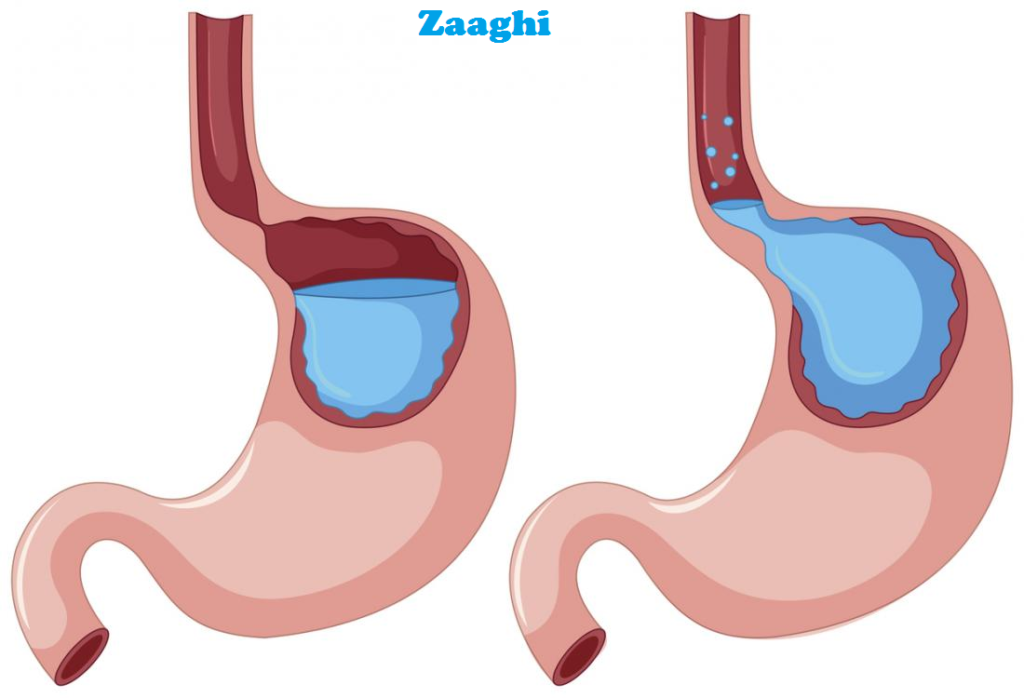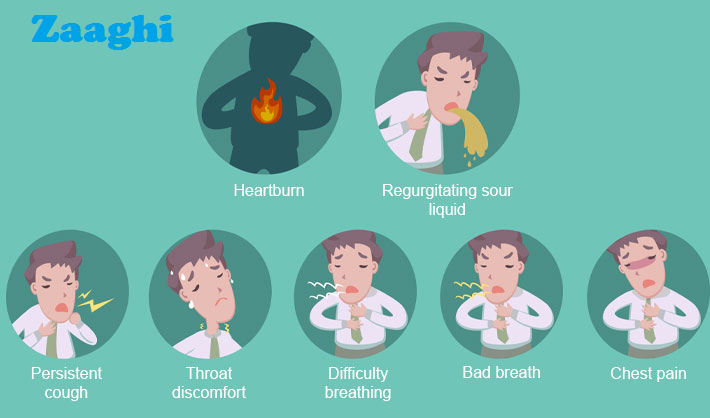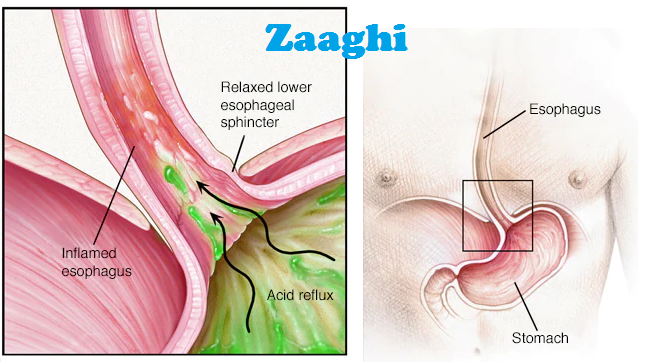Acid reflux happens when contents of the stomach flow back up into the oesophagus. Additionally, this activity is referred to as gastroesophageal reflux or acid regurgitation.
I think, if you have symptoms of acid reflux cough for more than two weeks, you may have gastroesophageal reflux disease. According to NIDDK, around 20% of Americans suffer from Acid Reflux Cough. When left untreated, it can occasionally result in many problems. I was having the same symptoms. At first, I was panic-stricken. Then I decided to study the causes of this and cure myself with proper medical treatment.
What Is Acid Reflux Cough?
Acid Reflux Cough or Gastroesophageal reflux disease (GERD), is a digestive malady affecting the muscular ring that connects the oesophagus to the stomach. The term “lower esophageal sphincter” refers to this ring (LES).
I got heartburn or acid indigestion. Doctors believe that certain people may suffer from it because of a disorder called hiatal hernia. Mostly, symptoms of GERD can be cured with lifestyle adjustments and a proper diet. However, some individuals may require surgery. Though I didn’t require any surgery.

Causes of My GERD
The terms “gastroesophageal” and “esophageal” relate to the stomach and oesophagus, respectively. The term “reflux” refers to a flow that returns or returns. Gastroesophageal reflux occurs when stomach acid backs up into the oesophagus.
Your LES normally opens to enable food into your stomach during steady digestion. Then it shuts, preventing food and acidic stomach fluids from returning to the oesophagus.
The reason causing my Gastroesophageal reflux was that the LES was weakened and it started relaxing abnormally. As a result, the stomach contents flowed upward into the oesophagus.
Symptoms and Signs of GERD
The most prevalent symptom of GERD (acid indigestion) is heatburn. Typically, it manifests as a searing chest discomfort that begins below the breastbone and moves upward to the neck and throat. In my case, I felt as though the food was returning to the mouth, leaving an acidic or bitter taste.
Heartburn’s burning, pressure, or agony lasted up to two hours. It was frequently worse after the meal. Additionally, lying down or leaning over caused more heartburn.

Then, I decided to stand up and took an antacid that helped in neutralizing the acid in their oesophagus. This method worked and I felt a little better.
People sometimes confuse heartburn discomfort with the pain associated with heart disease, although the two are distinct. But I would advise that if proper rest is taken, your pain will lessen. Physical exercise is less expected to cause heartburn pain. However, you cannot tell the difference, so I would suggest getting medical attention immediately if you experience chest discomfort.
Treatments That Cured My Acid Reflux Cough
GERD therapy seeks to reduce reflux or to minimise damage to the esophageal lining caused by refluxed materials. To address my symptoms, my doctor prescribed me over-the-counter or prescription drugs.
Antacids: These medications can assist in neutralizing acid in the oesophagus and stomach and so alleviate heartburn. Numerous individuals including me discovered that over-the-counter antacids give brief or partial relief.
The combination of an antacid and a foaming agent also benefited me. You can try this too, as the researchers hypothesize that these molecules create a foam barrier on top of the stomach, therefore preventing acid reflux.
However, prolonged use of antacids may cause diarrhea, changed calcium metabolism, and a magnesium accumulation in the body. Magnesium excess can be dangerous for persons with kidney problems. Take your doctor’s advice if you require antacids for more than two weeks.
H2 blockers: I had persistent reflux or heartburn, so my doctor prescribed medicine to lower stomach acid. These medications include H2 blockers, which assist to prevent the stomach from secreting acid. Cimetidine (Tagamet), nizatidine and famotidine (Pepcid) are all H2 blockers.
Proton pump inhibitors (PPIs), sometimes known as acid pumps, are medications that suppress a protein necessary for the production of stomach acid. Omeprazole (Prilosec), dexlansoprazole (Dexilant), lansoprazole (Prevacid), esomeprazole (Nexium), omeprazole/sodium bicarbonate (Zegerid), rabeprazole and pantoprazole (Protonix), are all examples of PPIs (Aciphex).
Prokinetics: In rare situations, these medications assist your stomach in emptying more quickly, leaving less acid behind. Additionally, they may alleviate symptoms such as nausea, bloating, and vomiting. However, they may have major negative effects. So, I chose to avoid these medications.
Many people are not able to take them, and those who can, they only do temporarily. Metoclopramide and domperidone are two examples of prokinetics ( Maxolon, Clopra, Metozolv, Reglan).

Changes in Diet and Lifestyle
Doctors recommend many lifestyle adjustments to help alleviate GERD symptoms. I was advised to follow the below adjustments.
Avoid LES-relaxing Foods and Beverages: Avoid foods such as peppermint, chocolate, coffee, alcoholic beverages and fatty foods. Additionally, you should not have foods and beverages that may trouble a damaged esophageal lining, such as juices of citrus fruits, tomato products, and pepper, if they induce symptoms.
Consume Fewer Servings: I used to eat fewer servings at meals which helped in managing the symptoms. Additionally, eating meals at least two to three hours before night allows your stomach’s acid to decrease and your stomach to partially empty. This is a great method.
Consume Slowly: Take your time with each menu.
Thoroughly Chew Your Meal: Keeping your fork down after each mouthful may help you to do so. Reintroduce it just after you’ve thoroughly eaten and swallowed the previous bite.
Put an End to Smoking: Cigarette smoking impairs the LES. It is critical to quit smoking in order to alleviate GERD symptoms. As I don’t have a smoking habit, this wasn’t applicable to me.
Upraise Your Head: Lying on a specially made wedge or raising the head of your bed with 6-inch blocks allows gravity to alleviate stomach acid reflux into the oesophagus. Make no attempt to support yourself with pillows. This simply adds to the stomach’s pressure.
Stay Fit: Being overweight frequently exacerbates symptoms. Many obese individuals experience relief by losing weight.
Wear Loose Clothes: Tight clothes squeeze your waist and put pressure on your stomach which lowers oesophagus.
Conclusion
Although GERD can make everyday tasks more difficult, it is seldom life-threatening. You will feel a bit relaxed if you understand the causes and get appropriate therapy. I hope the information and experiences I shared with you will give a brief idea of the causes and remedies of acid reflux cough. However, I would suggest taking proper medical aid from a doctor, if the situation worsens.









